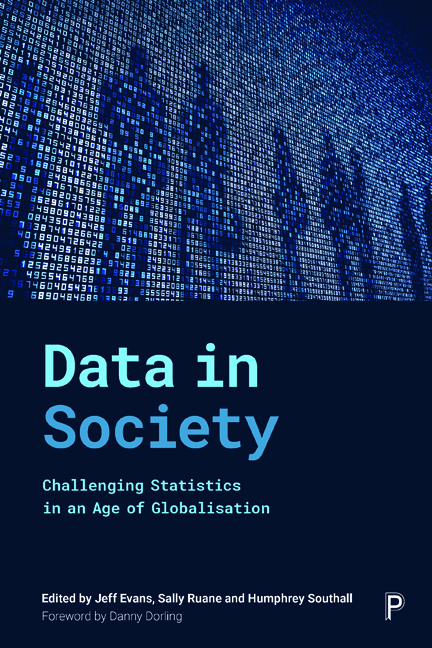Book contents
- Frontmatter
- Contents
- List of figures, tables and boxes
- Notes on contributors
- Foreword
- Preface
- General introduction
- Part I How data are changing
- Part II Counting in a globalised world
- Part III Statistics and the changing role of the state
- Part IV Economic life
- Part V Inequalities in health and wellbeing
- Part VI Advancing social progress through critical statistical literacy
- Epilogue: progressive ways ahead
- Index
9 - The control and ‘fitness for purpose’ of UK official statistics
Published online by Cambridge University Press: 30 April 2022
- Frontmatter
- Contents
- List of figures, tables and boxes
- Notes on contributors
- Foreword
- Preface
- General introduction
- Part I How data are changing
- Part II Counting in a globalised world
- Part III Statistics and the changing role of the state
- Part IV Economic life
- Part V Inequalities in health and wellbeing
- Part VI Advancing social progress through critical statistical literacy
- Epilogue: progressive ways ahead
- Index
Summary
Introduction
Given the myriad uses of official and national statistics across government, in the private sector and by citizens (Holt, 2008), public confidence in the national statistical system is crucial. Policy and operational decisions based on untrustworthy or misunderstood statistics can have serious negative consequences. Since official statistics emanate from government, belief in the trustworthiness of government and democracy itself is undermined if citizens mistrust official statistics. This chapter therefore addresses the following issues: who controls what UK official statistics are collected, for whose benefit – government or society – and how we can know that they are ‘fit for purpose’.
Changes made to the statistical landscape occur for different reasons: sometimes technical, sometimes to meet the evolving needs of government or other users. The consequences of such changes may take a long period to be manifested. Thus understanding of the current situation requires knowledge of why prior changes to policy and practice were made over some decades. Though official statistics have a very long history (Holt, 2008; Pullinger, 2013), we focus on modern times.
The post-war evolution of UK official statistics
Centralised or decentralised?
The UK has a highly disaggregated statistical system. It has been estimated that only 20‒30% of UK statistical products are produced by the National Statistical Institute (NSI), the Office for National Statistics (ONS). The remainder is created by numerous central government departments and their agencies, and by the devolved administrations (see Chapter 10). In some other countries the equivalent NSI production is much higher although new technology is facilitating the production of statistical data from diverse administrative processes (see Part I of this book). Consequentially, the UK's challenges in coordinating a highly decentralised statistical system are increasingly being faced elsewhere.
Under decentralised models, it is more difficult to ensure common approaches in governance and methods; as a result, not all statistics – on the NHS for example – are readily comparable between the four UK administrations. On the other hand, these devolved arrangements give priority to the collection of statistics which relate to the specific policy needs of individual departments and administrations. To that extent, official statistics in the UK are significantly shaped by strong subnational influences on what gets collected.
There have long been calls for significant structural change to our highly diversified sources of statistics, notably in parliamentary reports and by the Royal Statistical Society (RSS).
- Type
- Chapter
- Information
- Data in SocietyChallenging Statistics in an Age of Globalisation, pp. 119 - 132Publisher: Bristol University PressPrint publication year: 2019



